 Petzlover
Petzlover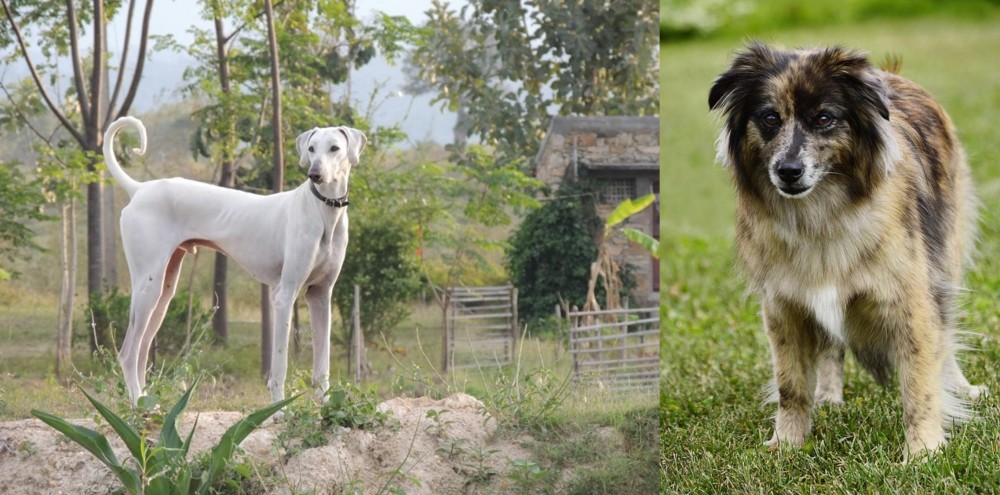 Chippiparai is originated from India but Pyrenean Shepherd is originated from Spain. Chippiparai may grow 13 cm / 6 inches higher than Pyrenean Shepherd. Both Chippiparai and Pyrenean Shepherd are of same weight. Both Chippiparai and Pyrenean Shepherd has same life span. Both Chippiparai and Pyrenean Shepherd has almost same litter size. Chippiparai requires Low Maintenance. But Pyrenean Shepherd requires Moderate Maintenance
Chippiparai is originated from India but Pyrenean Shepherd is originated from Spain. Chippiparai may grow 13 cm / 6 inches higher than Pyrenean Shepherd. Both Chippiparai and Pyrenean Shepherd are of same weight. Both Chippiparai and Pyrenean Shepherd has same life span. Both Chippiparai and Pyrenean Shepherd has almost same litter size. Chippiparai requires Low Maintenance. But Pyrenean Shepherd requires Moderate Maintenance
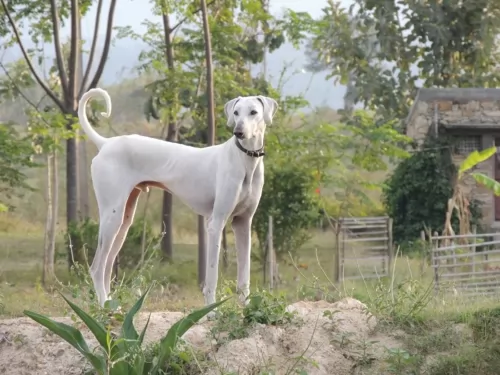 The Chippiparai is a working dog found in India and until recently there has been little interest in the purity of any breed, but rather only an emphasis on the abilities of the dog. They are only beginning to research the origin and history of their native dogs such as the Chippiparai. Not much is known about the origin of the breed except that it is found almost exclusively in Tamil Nadu and Keraia in the southern part of the subcontinent of India. Other than this there is much speculation about the breed’s origin but very little-known facts. It is indeed an ancient breed; however, its origin could be thousands of years ago or simply hundreds of years ago.
The Chippiparai is a working dog found in India and until recently there has been little interest in the purity of any breed, but rather only an emphasis on the abilities of the dog. They are only beginning to research the origin and history of their native dogs such as the Chippiparai. Not much is known about the origin of the breed except that it is found almost exclusively in Tamil Nadu and Keraia in the southern part of the subcontinent of India. Other than this there is much speculation about the breed’s origin but very little-known facts. It is indeed an ancient breed; however, its origin could be thousands of years ago or simply hundreds of years ago.
• Perhaps it is a descendant of the Saluki as it resembles this breed quite a bit. It has been believed for some time that the Saluki is the original sighthound and the source of all sighthound breeds. The Saluki was very popular in the Middle East, especially in Persia and Arabia from which it could easily have spread to India. It would then have been shared from Northern India to Southern India where the Chippiparai is found.
• Perhaps the Chippiparai is a descendent of sighthounds from Central Asia and Afghanistan – the Tazi, Taigan, Hortaya Borsaya or the Afghan Hound. This part of Central Asia had more trade, influence and contact with the Indian subcontinent early in their history than with any other region. The Chippiparai is considered by some to be more like these sighthounds than like the Saluki and the interaction between these regions has a much longer history than the Middle East and India.
• It is also speculated that the Chippiparai might have been developed completely and uniquely from the local street and working dogs. With the civilization of India being one of the oldest in the world, it is considered a possibility that the Chippiparai is the descendent of the Harappan hunting dogs that probably were developed by the Indus Valley or Harappa roiling class.
Wherever the Chippiparai came from, they were the exclusive property of the wealthy and ruling castes. These upper castes were the only ones that could legally hunt with dogs or afford to feed one. The royal classes of Tiruneivell, Thanjavur, and Madurai all fed the popularity of the breed among the upper castes. They were coursing dogs used to chase down the prey once it was sighted. The Chippiparai are incredibly fast runners and would catch almost any prey and either hold it or kill it for their hunter. The Chippiparai, when not hunting, had to be chained so they would not chase any small animal that they saw. This confinement also added to the purity of the breed as random breeding was prevented.
The southern part of the Indian subcontinent is extremely hot with routine temperatures over 100’. The Chippiparai was developed to withstand these extreme temperatures and is more heat tolerant than most any other breed. They also need very little food and are resistant to the many parasites and diseases found in southern India.
Harboring the belief that Indian dogs were not as good as European ones, the occupying countries of Portugal, France, and Britain, had no interest in the Chippiparai, again leaving the breed to develop naturally on their own with little or no interbreeding. They also received no formal recognition because Indian culture only valued the dog for its working abilities. There was no Indian Kennel Club until 1956.
The Chippiparai is now very rarely and only found in the area of its birth. Many believe the breed is in danger of becoming extinct and even though it is now registered with Indian Kennel Clubs it is not often shown in their dog shows. Lovers of the breed are now attempting to get Indians to recognize that the Chippiparai is a great companion animal and attempting to save the breed.
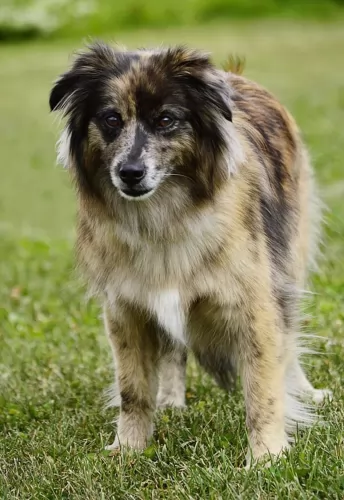 The Pyrenean Shepherd hails from Spain where he has always been used to herd sheep. Some people believe he is a descendant of the French Catalan Sheepdog while others say from the Briard. Nobody is too sure.
The Pyrenean Shepherd hails from Spain where he has always been used to herd sheep. Some people believe he is a descendant of the French Catalan Sheepdog while others say from the Briard. Nobody is too sure.
He is actually the smallest of the French herding breeds. It is interesting to note that he still does this herding job today. It was in the 19th century that a few of these dogs left for America with shepherds who found work herding flocks in the American West.
These dogs were also used in World War 1 as messenger dogs.
It was during the 1970's and 1980's that breeding programs were started for the dog and The Pyrenean Shepherd Club of America was formed in 1987. The dog was also recognized in 2009 by the American Kennel Club.
 The Chippiparai is a typical sighthound although their size and appearance will vary more than that of registered purebred sighthounds. Typically, they will have a long, domed head with small erect ears and dark eyes. Their muzzle will be as deep and wide as the skull but longer. Their legs are straight and long, their chest is roached back and deep, giving them, an appearance very similar to a greyhound or other sighthound.
The Chippiparai is a typical sighthound although their size and appearance will vary more than that of registered purebred sighthounds. Typically, they will have a long, domed head with small erect ears and dark eyes. Their muzzle will be as deep and wide as the skull but longer. Their legs are straight and long, their chest is roached back and deep, giving them, an appearance very similar to a greyhound or other sighthound.
They have a long curly tail, and their coat can vary greatly in color. They are medium sized, and their coat is short, shiny and close. He is very slender and sleek, which along with his long legs gives him that incredible speed. They are thin with visible ribs.
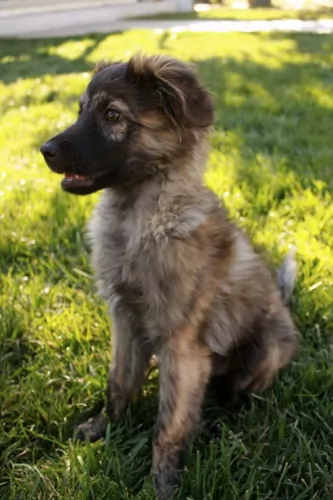 The Pyrenean Shepherd is a medium-sized dog standing at between 38 and 50cm in height and weighing between 14 and 20kg.
The Pyrenean Shepherd is a medium-sized dog standing at between 38 and 50cm in height and weighing between 14 and 20kg.
His head is fairly small with large, bright, expressive eyes. The ears are semi-erect. The tail has always traditionally been docked but often left long these days.
He comes with two different coat types – rough and smooth with sometimes both types being in the same litter. The dog is a regular shedder. The coat can be medium length or long and slightly wavy with a harsh texture. The coat can be of the shorter type with finer, softer hair. The coat is available in different colors and patterns, and can be a fawn color or grey and you will find a black overlay occasionally with some white. The coat can be tri-colored or he can be in solid colors such as cream or white.
Your feisty Pyrenean Shepherd is a dog with plenty of personality. He is also full of energy and will love to live with a outdoorsy-type family who are always on the go, because he’s in on everything.
He is distrustful of strangers and this together with the fact that he is so alert, makes him a splendid watchdog too.
He will need to be trained and socialized as he can be overly robust. He becomes obedient and well mannered, being totally dedicated to his owner. It isn’t easy for him to be separated from his beloved human owner.
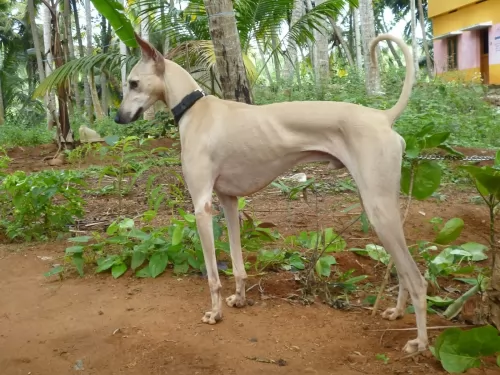 The Chippiparai is a loving, gentle family dog if well socialized, well trained and well exercised. They are very intelligent and need human companionship. Once they are living with a human family, they are very protective of that family. They are for the most part peaceful and quiet dogs. They are loyal and loving but they are not overly affectionate. Cuddlers they are not, and they do not like to play rough with children.
The Chippiparai is a loving, gentle family dog if well socialized, well trained and well exercised. They are very intelligent and need human companionship. Once they are living with a human family, they are very protective of that family. They are for the most part peaceful and quiet dogs. They are loyal and loving but they are not overly affectionate. Cuddlers they are not, and they do not like to play rough with children.
Accepting and loving within the family, the Chippiparai are equally hesitant and shy around strangers. They can be suspicious, but they are not aggressive. They are just very aloof with strangers, yet they hardly ever bark.
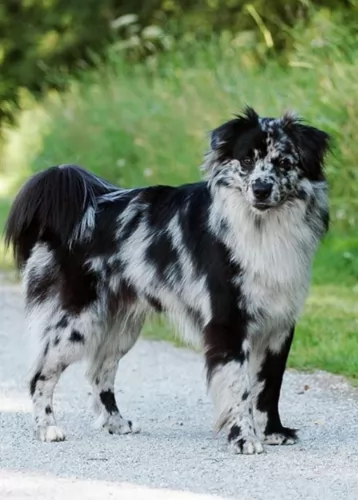 The Pyrenean Shepherd is essentially a one-person dog, becoming totally attached to one particular person in the family.
The Pyrenean Shepherd is essentially a one-person dog, becoming totally attached to one particular person in the family.
He is known as a dog who becomes totally loyal to his human family, getting on well with children as well as with other pets in the home.
He is aloof and wary of strangers. Training and socialization is important so as to avoid aggression and fear. This is one dog that requires being diligently exercised every day.
He is a great watchdog, and when you add up all his fantastic qualities, you get to realize what a splendid companion and pet this wonderful dog makes.
 There are no clinical studies regarding the health and health history of the Chippiparai, so little is known about their long-term health. However, most who know the breed, believe it is an incredibly healthy one. They seem to have a lot less genetically transmitted health issues than other purebreds. Because of their isolation for centuries in India, they have developed immunities and resistance to most parasites and diseases other dog suffer from.
There are no clinical studies regarding the health and health history of the Chippiparai, so little is known about their long-term health. However, most who know the breed, believe it is an incredibly healthy one. They seem to have a lot less genetically transmitted health issues than other purebreds. Because of their isolation for centuries in India, they have developed immunities and resistance to most parasites and diseases other dog suffer from.
Because of this you should look for the types of issues that occur in dogs of this size and build. Have them tested by the Canine Eye Registration Foundation and the Orthopedic Foundation for Animals.
 The Pyrenean Shepherd is such a jovial little dog that you just can’t imagine him ever being sick. When he is lethargic, you'll know there is something seriously wrong with him because he is always as bright as a button.
The Pyrenean Shepherd is such a jovial little dog that you just can’t imagine him ever being sick. When he is lethargic, you'll know there is something seriously wrong with him because he is always as bright as a button.
He can however get sick, and there are a few dog illnesses such as epilepsy, eye problems and hip dysplasia that can be very painful ad debilitating for such an energetic dog. You don’t have to be too concerned though, as he is a dog known to have minimal health issues.
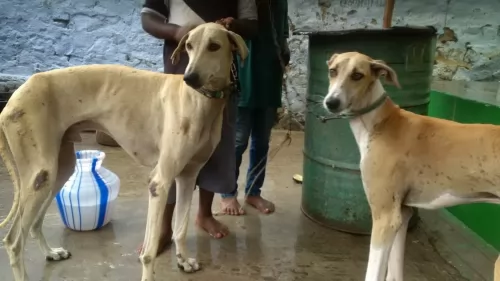 Do not overfeed your Chippiparai. Feed twice a day and no more than a total of 2.5 cups of high quality dry food.
Do not overfeed your Chippiparai. Feed twice a day and no more than a total of 2.5 cups of high quality dry food.
As mentioned previously the Chippiparai seems to have no genetic diseases or issues and very few acquired ones. However, he is sensitive to anesthesia and some foods. He is intolerant to cold weather and has a hard time with his pads on hard surfaces. Some Chippiparai might experience some of the ailments other breeds like them experience.
Both Elbow and hip are possible. This can cause arthritis and lameness. This occurs when the bone does not fit well into the joint.
This can cause lameness as well. The kneecaps slide over the knee instead of staying in place.
This is a hunting dog and he will want to hunt. They are incredibly fast and need the opportunity to run. Brisk walks will not be enough for this dog. He is very energetic. They will chase any small animals. It is not recommended that you have small pets even small dogs or cats with a Chippiparai. Having been bred for centuries to hunt, they are not likely to respond to any commands if they are off lease and chasing prey. Do not allow them to be off leash unless in a fenced area, and that fence needs to be 8 feet tall as they can easily jump a seven-foot fence. Try they at coursing, agility, fly ball and frisbee competitions.
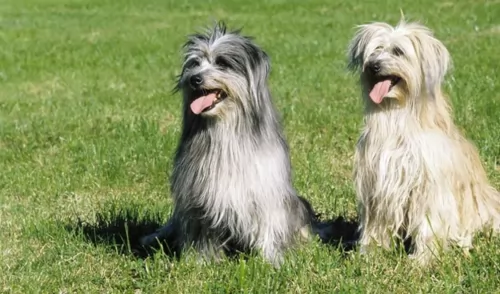 This will depend on the coat type. Both coat types will essentially require you brushing him twice a week.
This will depend on the coat type. Both coat types will essentially require you brushing him twice a week.
The Pyr Shep’s activity levels are very high and this dog will require living with people who love outdoor activities. He’s the perfect companion for those camping trips or hikes. He is always ready to join you on your walks and will be ready and waiting to jump right in when he sees you with a ball or frisbee.
For all that energy, your Pyrenean Shepherd will be needing the best dog food there is. Food full of preservatives and colorants can be bad for your pet, detrimental to his health.
Good food full of vitamins and minerals will ensure your pet stands a good chance of living a long, healthy life. If you feed him commercially manufactured dog food, ensure its the best there is, with labeling on the packaging that tells you its for his age, his size and energy levels.
Consistency and simplicity is what your Pyrenean Shepherd wants, and home-made food can enhance his dry kibble. Boiled chicken, brown rice or pasta and spinach, sweet potatoes and carrots all chopped up and mixed into the dry kibble once or twice a week will ensure your pet’s eyes are continuously bright and alert and his tail constantly wagging.
Some raw meat added in occasionally will also go towards ensuring his good health. Always make sure he has access to fresh, cool water.